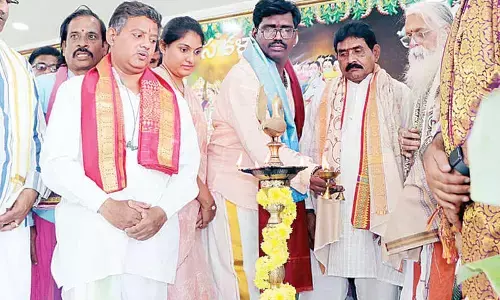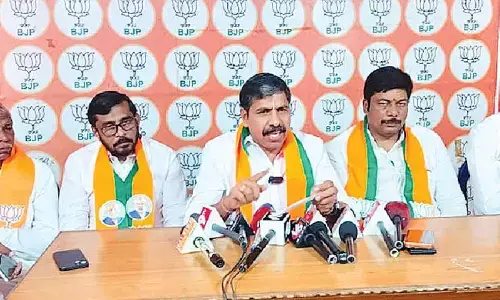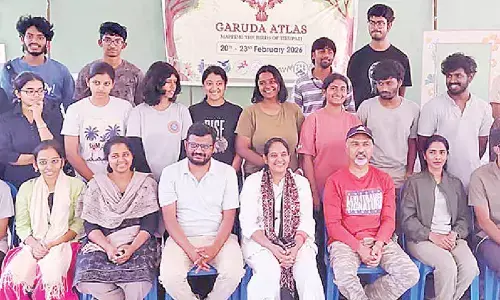All about Open Network for Digital Commerce and how will it affect online retailers in India?

Nandan Nilekani will level the playing field for small merchants with ONDC. If successful, the e-commerce grid could help millions of small businesses go online and worry less about the global giants.
The ONDC (Open Network for Digital Commerce) was incorporated on December 31, 2021, as a private sector non-profit company to democratize digital commerce (e-commerce) in India and provide alternatives to e-commerce sites patented. The central government has set up a nine-member advisory council, that includes Nandan Nilekani of Infosys and the CEO of the National Health Authority, RS Sharma, to consider measures needed to design and accelerate the adoption of the ONDC.
The initiative is promoted as an effort to end the dominance of online platforms like Flipkart and Amazon, which have been accused by the government of exercising a monopoly, against the law.
Although it has been labelled as detrimental to foreign players in the online trading segment by many industry stakeholders, several private and public sector banks such as Axis Bank, HDFC, Kotak Mahindra, Punjab National Bank (PNB) and State Bank of India (SBI) have chosen to participate in the ONDC.
Axis Bank, HDFC, Kotak Mahindra and SBI have reportedly acquired a 7.84 percent stake each, individually investing INR 100 million (US$1.3 million) to purchase 10,00,000 par value equity shares. of INR100 each. In early November 2021, PNB announced its plans to purchase 9.5 percent of ONDC's shares.
What is the Open Network of Digital Commerce?
To provide equal opportunities to all market players, including consumers, the ONDC is envisioned as a neutral platform that will establish protocols for open source cataloguing, vendor matching, and price discovery along the lines of unified payments (UPI). What this implies is buyers and sellers can transact regardless of whether they are connected to any specific e-commerce portal. For example, even if seller X is registered on platform A, while the consumer is registered on platform B, the consumer can directly buy products from seller X without registering on platform A, once ONDC is implemented.
What is open source?
Making a process or software open source implies that the technology or code implemented for the process is freely available for everyone to use, redistribute, and modify. For example, while the iOS operating system is closed source (it cannot be legally modified or used), the Android operating system is open source, allowing smartphone manufacturers such as Samsung, Nokia, Xiaomi, etc., to modify it for the hardware.
Importance of India's Open Network for Digital Commerce
ONDC is anticipated to digitize the entire value chain, standardize operations, foster supplier inclusion, usher in efficiency in logistics and increase value for consumers. expected
Once the ONDC is implemented and mandated, as expected in August 2022, all e-commerce businesses in India will be required to operate using the same processes, similar to Android-based mobile devices, regardless of brand. This would give a boost to smaller online retailers, and new entrants, by driving discoverability, interoperability, and inclusivity. It will empower providers and consumers by breaking the monopoly of giant platforms to drive innovation and transform businesses in sectors such as retail, food and mobility.
Companies are expected to benefit from transparent rules, light investment and lower business acquisition costs. Time to market and scale time is also expected to be substantially reduced.
However, the biggest e-commerce giants are protesting because they have already invested heavily in research and development, as well as rolling out their own processes and technology.
ONDC aims to foster open networks developed with open source methodology, using open network specifications and protocols, and independent of any specific platform.
Nandan Nilekani shared his views on the future of Digital Commerce with ONDC
"It's an idea whose time has come," Nilekani said recently in a conversation at his private office in the Billionaire's Row area of Koramangala in Bangalore, home to some of the nation's top tech tycoons. "We owe it to the millions of small sellers to show an easy way to participate in the new high-growth area of digital commerce."
The nonprofit system, which goes by the unwieldy name of the Open Network for Digital Commerce, seeks to address those concerns. Never tried anywhere else, it aims to enable small merchants and retailers to connect and get the reach and economies of scale of the giants. Essentially, the government would create its own e-commerce ecosystem for everyone, designed to loosen the grip of companies like Amazon that dictate which brands get access to mainstream consumers and on what terms.
If successful, the e-commerce grid could help millions of small businesses go online and worry less about the global giants.








